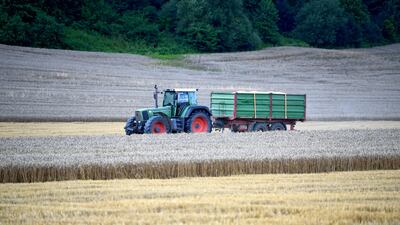Aided by climate change, crop diseases could outstrip increased yields that come with warmer weather in some of the world’s most fertile zones, a new study has found.
Some of the 8,000 species that cause crop diseases are spreading towards the poles because of long-term changes in temperature, a paper published in Nature Climate Change said.
The study by British and Dutch researchers found that Europe, China and Peru are among the areas at greatest risk from the spread of plant diseases.
While disease has been an ever-present threat since humans started cultivating their own crops more than 10,000 years ago, the authors said rising temperatures and the globalisation of food production have brought extra dangers.
Germany in 2013 reported a disease not seen for decades in its wheat crops that was linked to warmer temperatures. And previous catastrophic epidemics, including the Irish potato famine of the 1840s and the 1943 Great Bengal Famine, have been linked to plant diseases entering new area.
The disease-causing fungi are highly sensitive to climate change and scientists say their range is moving up to 7 kilometres a year towards the poles.
The researchers, studying the impact of climate change on 12 crops during the 21st century, predicted that the warmer weather would cause an overall global increase in the production of crops such as wheat, cassava, rapeseed and sunflower.
But despite improvements in protections against plant diseases, modern agriculture remains vulnerable to sudden and unpredictable changes caused by crop epidemics. The paper said that the global nature of the food industry has also caused new problems, with some diseases introduced through contaminated seed imports.
“The suite of crop diseases that farmers face in some of the world’s most productive regions will change dramatically,” the study concluded. “Agriculture must therefore prepare accordingly if any potential benefits of climate change for crop yields are to be realised.”

